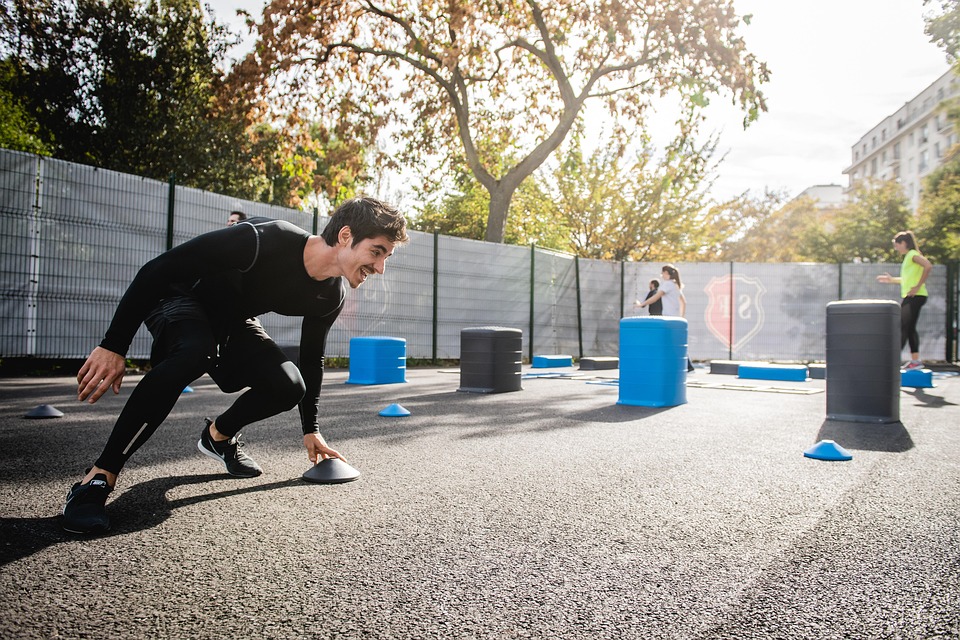
Cardiovascular exercise, often referred to as cardio, plays a pivotal role in maintaining heart health and enhancing overall fitness. Engaging in regular cardio activities can help reduce the risk of chronic diseases, improve mood, and increase stamina. This ultimate guide will explore the many benefits of cardio, types of cardio exercises, effective workout strategies, and tips to maximize your cardio routines.
What is Cardio?
Cardio exercise is any physical activity that raises your heart rate and breathing rate. It engages large muscle groups and is typically sustained for an extended period. Common forms of cardio include walking, running, cycling, swimming, and dancing.
Importance of Cardio for Heart Health
-
Improved Heart Function: Regular cardio strengthens your heart muscle, making it more efficient at pumping blood. This leads to improved circulation and oxygen delivery to your tissues.
-
Lower Blood Pressure: Engaging in cardio can help lower blood pressure levels, reducing the strain on your cardiovascular system.
-
Cholesterol Control: Cardio exercises can help raise levels of HDL (good cholesterol) and lower levels of LDL (bad cholesterol), which is crucial for preventing heart disease.
-
Weight Management: Cardio helps burn calories, making it effective for weight management and reducing body fat percentage.
- Reduced Risk of Chronic Diseases: Regular participation in cardio activities can lower the risk of illnesses such as Type 2 diabetes, obesity, and certain types of cancer.
Types of Cardio Exercise
-
Steady-State Cardio: This involves maintaining a consistent pace over a prolonged period, such as jogging for 30 minutes or cycling at a steady speed.
-
High-Intensity Interval Training (HIIT): This form alternates between short bursts of intense activity and periods of rest or lower-intensity exercise. HIIT has been found to be particularly effective for burning fat and improving cardiovascular endurance in less time.
-
Low-Impact Cardio: Activities such as swimming, cycling, or using an elliptical machine reduce impact on the joints, making it ideal for beginners or those with injuries.
-
Functional Training: Incorporating movements that mimic everyday activities, such as stair climbing or kettlebell swings, helps improve cardiovascular endurance while enhancing overall strength and mobility.
- Dance-Based Workouts: Engaging in dance classes like Zumba or hip-hop can be a fun and effective way to get your heart rate up while enjoying music.
Creating Your Cardio Workout Plan
To gain maximum benefits from cardio workouts, it’s essential to create a structured plan tailored to your fitness goals. Here’s how:
1. Determine Your Goals
- Weight Loss: Aim for at least 150-300 minutes of moderate-intensity cardio per week.
- Endurance Training: Gradually increase the duration and intensity of your workouts.
2. Choose Your Activities
Select at least two or three types of cardio exercises that you enjoy. This diversity can help prevent boredom and maintain motivation.
3. Schedule Your Workouts
Consistency is key. Plan your cardio sessions at specific times throughout the week, ensuring they fit into your daily routine.
4. Track Your Progress
Keep records of your workouts, including duration, intensity, and how you felt. This can help you identify patterns and make necessary adjustments.
5. Incorporate Rest Days
Allow time for recovery to avoid overtraining and reduce the risk of injury. Implement one to two rest days in your weekly routine.
Tips for Maximizing Your Cardio Workouts
-
Warm-Up: Always begin with a 5-10 minute warm-up to prepare your body for the workout.
-
Hydration: Ensure you are adequately hydrated before, during, and after your workout. Dehydration can negatively impact performance.
-
Focus on Form: Proper technique is essential to prevent injuries and maximize efficiency.
-
Intensity Adjustment: Pay attention to your heart rate and adjust your intensity accordingly. Aim for 50-85% of your maximum heart rate for optimal benefits.
- Mix it Up: Incorporate various cardio exercises and additional fitness modalities like strength training for a well-rounded fitness regime.
Nutritional Considerations for Cardio
Your diet plays a crucial role in how well your body performs during cardio workouts. Here are a few nutritional tips:
-
Pre-Workout Nutrition: Consume a balanced meal with carbohydrates and protein a few hours before exercising. A banana or a piece of toast with peanut butter about 30 minutes prior can provide a quick boost.
-
Post-Workout Recovery: Replenish lost nutrients with a combination of protein and carbohydrates within 30 minutes post-exercise. Consider smoothies, yogurt, or protein bars.
- Stay Balanced: Aim for a well-rounded diet rich in whole grains, fruits, vegetables, lean proteins, and healthy fats.
Conclusion
Incorporating cardio into your fitness routine can yield countless health benefits, especially for your heart. Whether you’re a beginner or an experienced athlete, the various types of cardio workouts allow everyone to find something that suits their interest and goals. Remember to listen to your body, stay consistent, and enjoy the journey to better heart health and stamina.
Frequently Asked Questions (FAQs)
1. How often should I do cardio for optimal heart health?
Aim for at least 150 minutes of moderate-intensity cardio each week, or 75 minutes of vigorous activity, spread over several days.
2. Can I lose weight by doing only cardio?
While cardio is effective for weight loss, combining it with strength training and a balanced diet can optimize results.
3. What type of cardio burns the most calories?
High-Intensity Interval Training (HIIT) is known for burning the most calories in a short period due to its intensity.
4. Is it safe to do cardio every day?
While daily cardio can be beneficial, it’s crucial to include rest days and vary the intensity to prevent overuse injuries.
5. What should I eat before a cardio workout?
Opt for easily digestible carbs, like bananas or oatmeal, about 30-60 minutes before exercising to fuel your workout effectively.
By understanding the essentials of cardio and integrating those into your lifestyle, you can boost your heart health, enhance your stamina, and lead a more active, fulfilling life.
For further reading on cardiovascular health, consider reputable sources like The American Heart Association or the Mayo Clinic.






